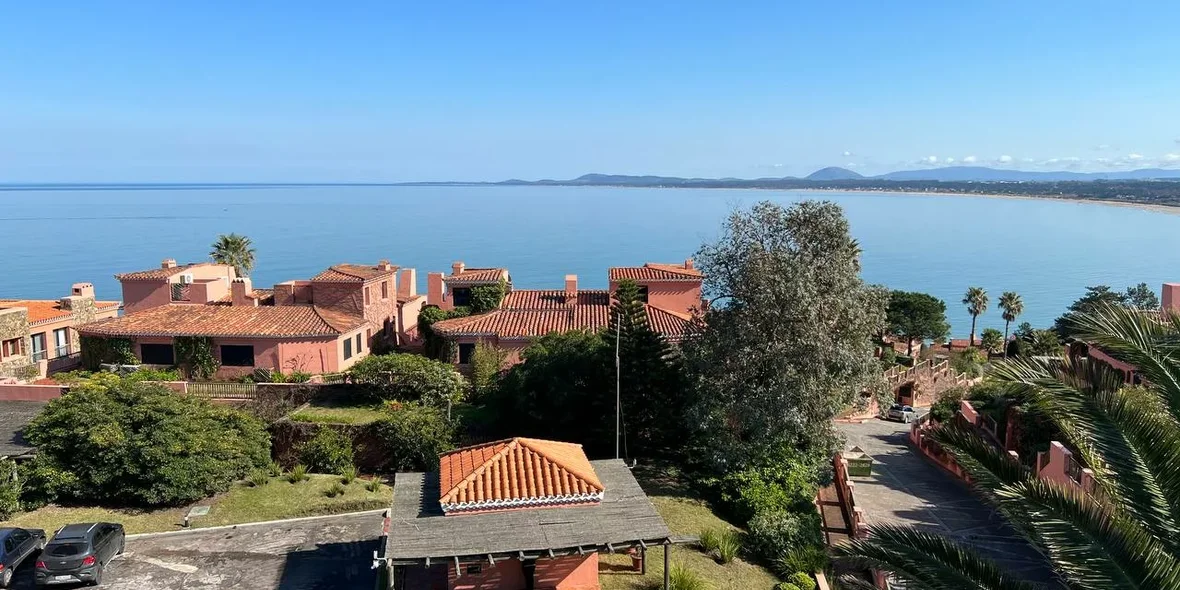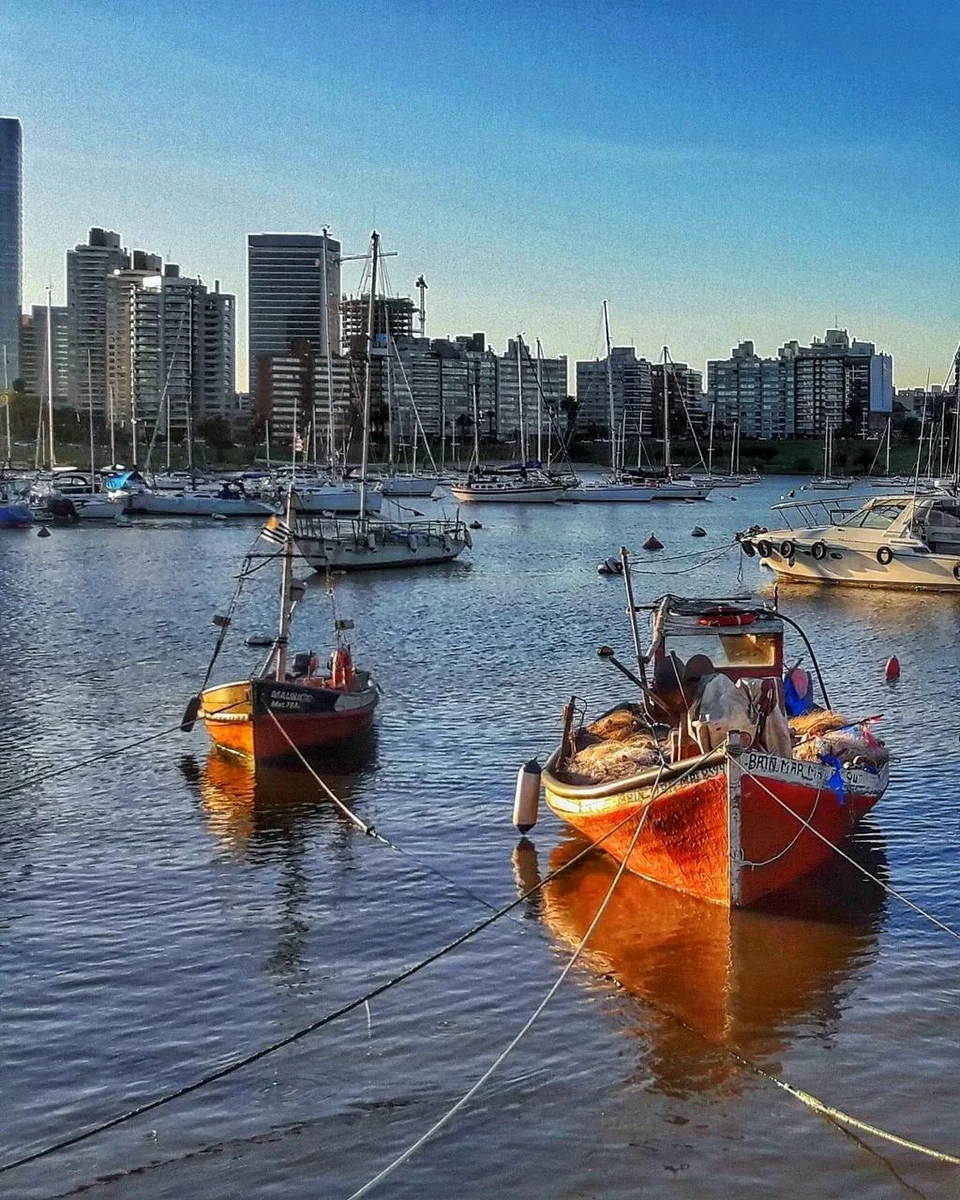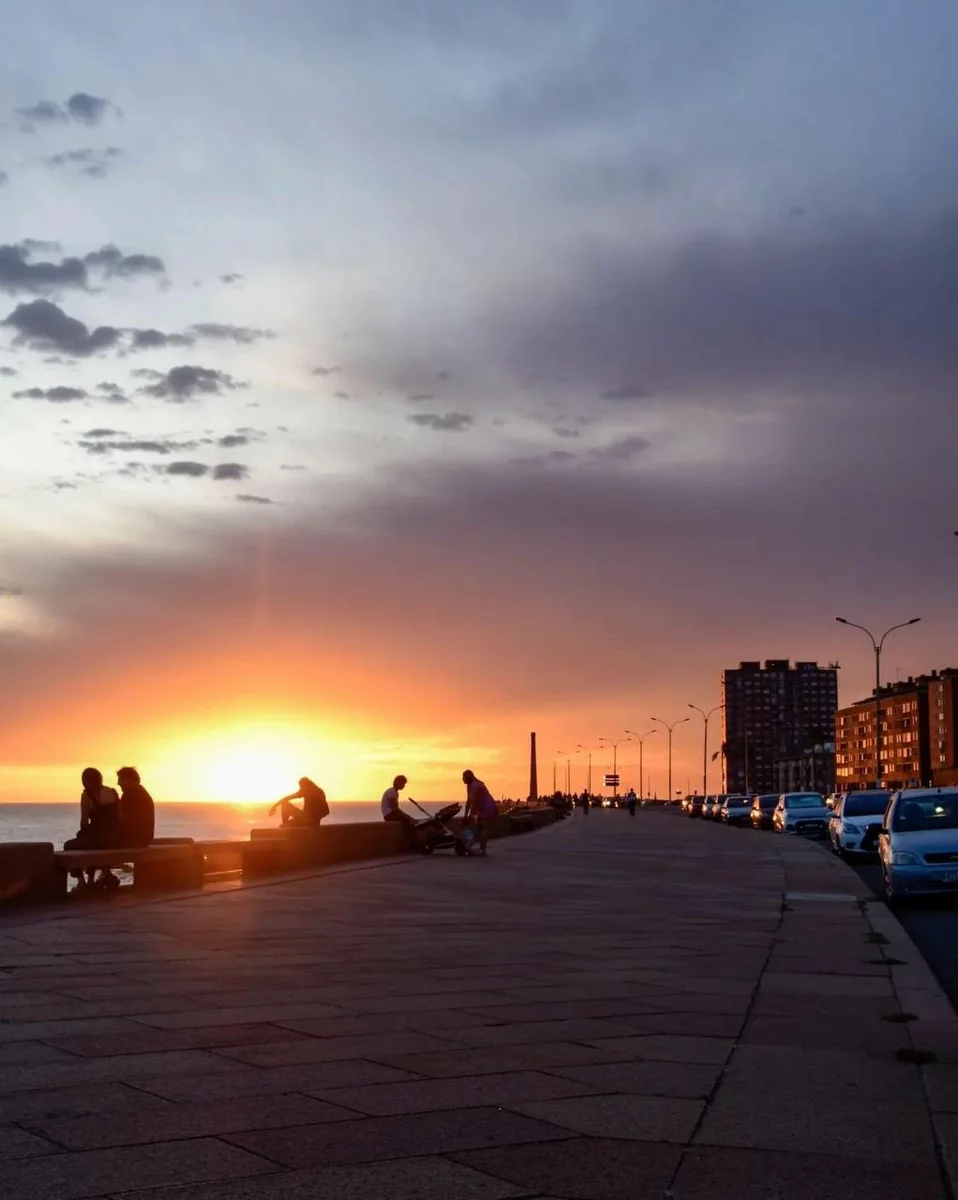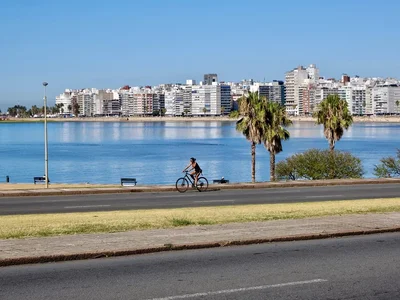
“The Uruguayan market is still a secret, although there is something to buy and something to make money on.” Cheap housing, tax residency by investment, and profitability
The real estate market in Uruguay—a hidden gem of Latin America? We spoke with an expert to learn how to purchase an apartment in Uruguay, how much return investors can anticipate from the market, how a foreigner can obtain tax residency in the country, and whether transactions can be completed remotely.
Posh beaches, colonial architecture, unique national parks, and nature reserves—all this is Uruguay, the country that borders Brazil in the north and Argentina in the west and is washed by the Atlantic Ocean in the east.
From the 16th to the 19th centuries, Uruguay was under Spanish colonial rule, but as early as 1830, it adopted its own constitution. Today, Uruguay is a small country with progressive democratic institutions and a stable economy. And, being essentially a gateway to South America for multinational companies as a logistics and financial center, Uruguay is performing very well in a growing real estate market.
It was about real estate that we talked to Igor Barsukov, founder of Inmobiliaria océano magnífico. He told us how to buy property in Uruguay and make money on it, what factors shape prices in the market, how much it costs to rent a house in Uruguay, and what objects are the most liquid.
“Uruguay is legally on the side of property owners.”
 — Tell us about the real estate market in Uruguay. How is it structured, and why is it attractive?
— Tell us about the real estate market in Uruguay. How is it structured, and why is it attractive?
— The real estate market in Uruguay is one of the most stable and developing on the continent. It's very balanced—not inflated, not overheated, and understandable. Factors such as a modern approach to construction and the absence of legislative obstacles to investment make it a unique environment for growth. At the same time, this market is a kind of “secret” because of its zero PR, although there is something to buy and something to earn.
In Uruguay, there are clear procedures for buying, selling, and securing property. All developers and real estate agencies are members of professional associations, and there have been no cases of fraud for a very long time.
By the way, there is a huge number of developers in Uruguay, which is only increasing: there is a large construction of apartment buildings and cottage communities of different levels and concepts, and a lot of private building in the coastal zone—more than 400 kilometers of luxurious sandy beaches hint that there is room to grow.
In general, in the construction of housing in Uruguay, there are two main areas: 1) building in the resort area with a view to further renting, and 2) building for permanent residence in large cities. And in the capital, Montevideo, both formats are combined: closer to the waterfront—for rent; in the bedroom community—for sale and rent to the domestic consumer.
“The cheapest housing is in the small townships and the most crime-ridden areas of Montevideo.”
— What is the current real estate price situation? Where are the cheapest and, conversely, the most expensive homes for sale in Uruguay?
— A year ago, you could get a good apartment for about $110,000—now, it is already $120,000. However, keep in mind that by the end of the year, the prices at developers will be adjusted by 10-15%. The fact is that real estate in the country is indexed to inflation, and we are talking about the calculation in U.S. dollars.
The cheapest housing is in the small townships and the most crime-ridden areas of Montevideo. I've seen properties for $8,000—with a blanket instead of a door and with neighbors who are real pirates.
The most expensive homes are sold in the Carrasco area of Montevideo and in the resort town of Punta del Este.
The crucial factor in determining the price is the location; in second place is the state. But it is worth noting that the Uruguayans are quite unassuming and not so spoiled by the premium standards, so often foreigners are in shock after viewing the apartments. Therefore, it is important to go to showings with realtors who will understand your needs.


— How much does it cost on average to rent an apartment in Uruguay?
— If we are talking about long-term rentals of a year or more, an apartment with one or two bedrooms can be rented for $700-1100. This is without utilities, which are divided into two parts: permanent and variable. Per month, it ranges from $70 to $300, plus $100-$150 for light and internet.
Leases are signed for a minimum of one year and are guaranteed either by a cash deposit of six months or by an insurance company at the tenant's expense. I should also note that Uruguay is legally on the side of property owners, and there are no horror stories about the inability to evict insolvent tenants in Uruguay.
“Uruguay makes no difference between foreign investors and locals.”
— Which foreigners buy property in Uruguay most often? And what are the conditions for such a transaction?
— Uruguay is a traditional haven for capital from neighboring Argentina and other Latin American countries. Moreover, Uruguay is always in a winning position, both in periods of economic growth in the neighboring countries and in times of crisis there.
Leaders in terms of demand, however, are the Argentines because of the endless crises in the country and the devaluation of the national currency. Plus, the Uruguayans and Argentines are essentially the same people and are very close: this is expressed even in a special dialect of Spanish called La Plata dialect (named for the delta of the river that divides these countries).
The procedure for buying a property by a foreigner is clear and transparent to all parties—Uruguay makes no difference between foreign investors and local ones. The exception is mortgages, which are not available to foreigners.
It is possible to organize the purchase process remotely. For this purpose, a general power of attorney for the purchase of real estate is written, notarized, and apostilled for agents acting as investors' representatives. The power of attorney is sent to Uruguay by post, we do the translation into Spanish with the help of a trusted translator, and then the document is registered by a local notary. After that, you can proceed with the transaction.
Payment is mostly made by check or transfer from an account if the origin of the funds is confirmed. It is also possible to buy real estate for cryptocurrency or cash (but this is a rare practice).
— What objects in the country are the most liquid and how much you can earn on real estate?
— The most liquid options in Uruguay are new homes, or old houses after reconstruction.
In the case of investment in the purchase of new buildings, there are several options for earning:
1) Buying at the foundation stage, then customizing the finishes (underfloor heating, double glazing), and selling after construction is complete. Yield is +20-30% over 2 years.
2) Purchase at the stage of the foundation, additional investment in the furnishing of apartments, and then a monthly lease. Here, the return on investment reaches 12% per year or more.
3) Without additional investment, we begin to rent the apartment immediately after the delivery of the house. In this case, the return on investment is 7% per year or more.
As for the second liquid option—the old building, which is a lot in the country—in recent years, it has gained momentum as follows: buy a house with five-meter (or more) ceilings, divided into several two-story apartments with ceilings of 2.5 meters, respectively, and then these apartments are offered for sale at a price below market but with a good markup.

— Can an Uruguayan property investor expect any privileges or benefits?
— Yes. In Uruguay, it is possible to become a tax resident by investment: the simplest is to invest in real estate for $380,000 and stay in the country for a total of 60 days per calendar year (if you invest $1,800,000, you do not need to reside in Uruguay for even a day).
This residence allows you to pay 7% of income tax on all income obtained elsewhere, or not pay taxes for 10 years and, starting with the 11th year of tax residency, pay 12%.
The procedure for obtaining a residence permit in Uruguay is simple, as well as obtaining citizenship—but these processes are not related to investments in real estate.
Author
I am responsible for editorial work. I write expert interviews and guides.
















